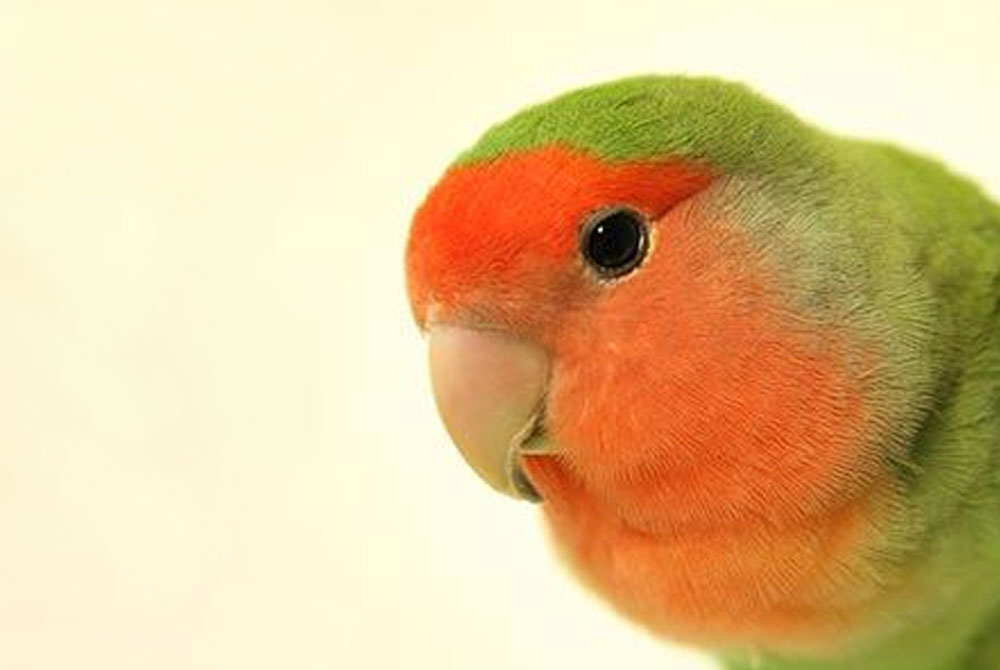By Karen Burja About twelve years ago my husband’s grandmother was given a black-faced lovebird by her caretaker. He was a nice bird but would grab the wire bars of the cage and “pop”, the bars. She thought he was lonely so she gave him to me. We have friends that raise birds so I told them of his bad habit of “popping” the cage bars. Their solution was to give him a girlfriend. They gave us a little peach-faced lovebird to be his companion. I decided to name him Cyrano de Bergerac, from the play of the same name, and her name should be Roxane to match a character in the play as well. She came in a breeder box that she called home, which she didn’t come out of much. I attached the breeder box to the side of Cyrano’s cage and waited to see if they would get along. It was fun watching their exchange of glances thru the opening and chatter of excitement they had. They did end up hitting it off and before long there were three eggs in the breeder box. After that, Cyrano spent most of his days feeding Roxane so she wouldn’t have to leave the nest. Before long, there were three little ones to take care of. They were both really good parents and their young grew quickly. Soon, the little ones had feathers and their faces were a brilliant purple. Unfortunately, I couldn’t keep them all. So, on a subsequent visit to the flea market I found a buyer for the little tikes with a vendor. He looked them over with surprise and said: “Oh, these are mules.” Not knowing the term, I asked him for further explanation. He stated that since one lovebird was an “eye-ring” lovebird and the other was a peach-faced lovebird that they would create “mules” or hybrids, which means that they won’t be able to have young. I told the vendor that I was unaware of that fact and I should have done more research before breeding the two lovebirds. Hybrid lovebirds are fine as pets they just can’t reproduce. Doing research before undertaking a project is almost always helpful as long as it is coming from a reputable site. For more information about lovebirds, consider the Avian Website. http://www.parrotparrot.com/species-guides/lovebirds/peachfaced-lovebirds/ (If you bring your bird into the Lytle Veterinary Clinic you will likely meet Karen Burja. Her experience with birds makes her a great handler and she is our resident bird technician.)







Leave A Comment